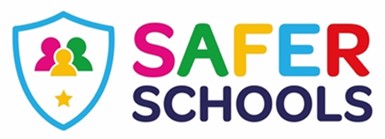E-Safety
The academy promotes the safe and positive use of digital technology for pupils and parents/carers.
E-safety is an increasingly pressing issue for parents/carers, Packmoor Ormiston Academy have adopted the Safer Schools App as a way of equiping them with the necessary knowledge to keep their children protected online, so that the whole family can enjoy the internet securely.

The online world can be a bit overwhelming at times but it is important we understand what our children are doing online so we can help make them safer. The Safer Schools App aims to help with this. The App is designed to support and protect children by educating and empowering them both at school and at home. Through their log-in, KS2 children get access to information that is relevant to them, and parents/carers/guardians of any aged child will receive tips and advice on how to keep them safer online.
For details of how to access the Safer Schools App please contact your child’s class teacher.
What is e-safety?
E-safety is the safe use of information systems and electronic communications, including the internet, mobile phones and games consoles. It is important that children and young people understand the benefits, risks and responsibilities of using information technology.
- E-safety concerns safeguarding children and young people in the digital world.
- E-safety emphasises learning to understand and use new technologies in a positive way.
- E-safety is less about restriction and more about education about the risks as well as the benefits so we can feel confident online.
- E-safety is concerned with supporting children and young people to develop safer online behaviours both in and out of school.
Useful information to help keep your child safe online
- Ask permission before using the Internet.
- Only use websites you have chosen together or a child friendly search engine.
- Only email people they know (why not consider setting up an address book?).
- Ask permission before opening an email sent by someone they don’t know.
- Do not use Internet chat rooms.
- Do not use their real name when using games on the Internet (create a nick name).
- Never give out a home address, phone or mobile number.
- Never tell someone where they go to school.
- Never arrange to meet someone they have ‘met’ on the Internet.
- Only use a webcam with people they know.
- Ask them to tell you immediately if they see anything they are unhappy with.